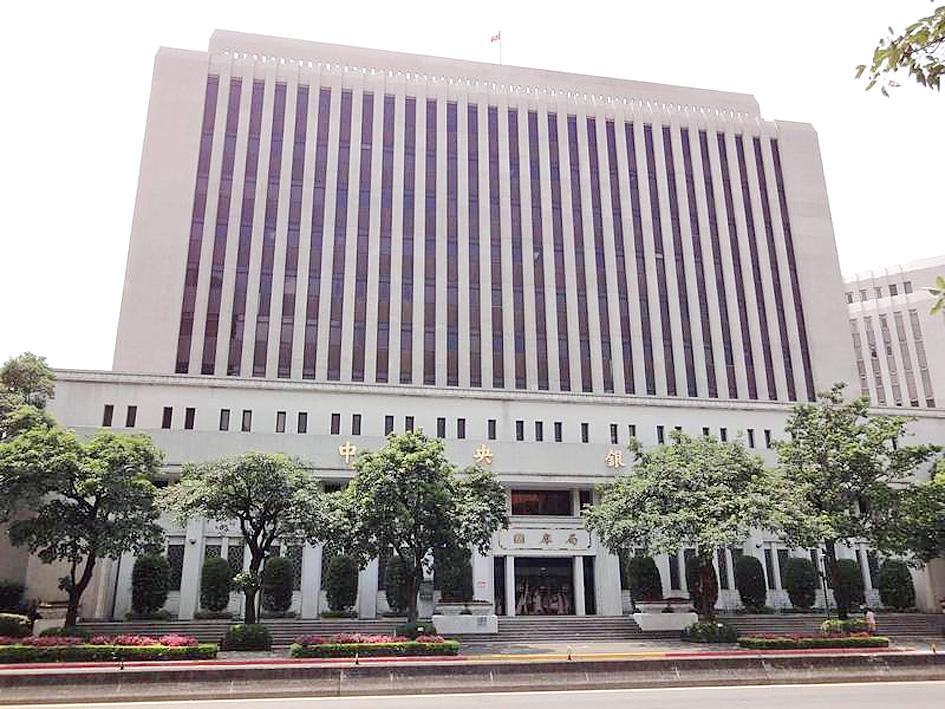Taiwan remained the fifth-largest net creditor in the world at the end of last year, as the nation’s net international investment position (NIIP) rose 0.9 percent to a new record at US$1.41 trillion, albeit slower than a 10.5 percent growth in 2020, the central bank said yesterday.
NIIP is the difference between a country’s external financial assets and its external financial liabilities.
Japan was the world’s largest net creditor with an NIIP of US$3.6 trillion, followed by Germany with US$2.7 trillion, Hong Kong with US$2.1 trillion and China with US$1.9 trillion, the central bank told a virtual news conference.

Photo: Allen Wu, Taipei Times
While Hong Kong’s NIIP stayed flat from a year earlier, Japan, Germany and China all saw their NIIPs decline last year, it said.
Taiwan’s external assets last year grew 7.9 percent year-on-year to US$2.71 trillion, as local life insurers purchased more overseas bonds and their holdings of foreign equities posted higher valuations, the central bank said.
As a result, the nation’s investment in overseas securities expanded 11.3 percent annually to US$1.2 trillion at the end of last year, it said.
Taiwan’s direct investment in overseas markets gained 10.9 percent from a year earlier to US$444.5 billion, while external assets held by the central bank edged up 3.5 percent to US$553.9 billion, it added.
The nation’s external liability last year grew 16.7 percent to US$1.3 trillion, mainly because of a 14 percent increase in direct investment by foreigners and a 23 percent increase in securities investment by foreign investors, the central bank said.
As the TAIEX last year advanced 23.7 percent — outstripping the global average of 17 percent — rising local stock prices pushed up the valuation of shares held by foreign institutional investors, which in turn boosted the nation’s external liability, the central bank said.

Taiwan will prioritize the development of silicon photonics by taking advantage of its strength in the semiconductor industry to build another shield to protect the local economy, National Development Council (NDC) Minister Paul Liu (劉鏡清) said yesterday. Speaking at a meeting of the legislature’s Economics Committee, Liu said Taiwan already has the artificial intelligence (AI) industry as a shield, after the semiconductor industry, to safeguard the country, and is looking at new unique fields to build more economic shields. While Taiwan will further strengthen its existing shields, over the longer term, the country is determined to focus on such potential segments as

UNCERTAINTY: Innolux activated a stringent supply chain management mechanism, as it did during the COVID-19 pandemic, to ensure optimal inventory levels for customers Flat-panel display makers AUO Corp (友達) and Innolux Corp (群創) yesterday said that about 12 to 20 percent of their display business is at risk of potential US tariffs and that they would relocate production or shipment destinations to mitigate the levies’ effects. US tariffs would have a direct impact of US$200 million on AUO’s revenue, company chairman Paul Peng (彭雙浪) told reporters on the sidelines of the Touch Taiwan trade show in Taipei yesterday. That would make up about 12 percent of the company’s overall revenue. To cope with the tariff uncertainty, AUO plans to allocate its production to manufacturing facilities in

COLLABORATION: Given Taiwan’s key position in global supply chains, the US firm is discussing strategies with local partners and clients to deal with global uncertainties Advanced Micro Devices Inc (AMD) yesterday said it is meeting with local ecosystem partners, including Taiwan Semiconductor Manufacturing Co (TSMC, 台積電), to discuss strategies, including long-term manufacturing, to navigate uncertainties such as US tariffs, as Taiwan occupies an important position in global supply chains. AMD chief executive officer Lisa Su (蘇姿丰) told reporters that Taiwan is an important part of the chip designer’s ecosystem and she is discussing with partners and customers in Taiwan to forge strong collaborations on different areas during this critical period. AMD has just become the first artificial-intelligence (AI) server chip customer of TSMC to utilize its advanced

Chizuko Kimura has become the first female sushi chef in the world to win a Michelin star, fulfilling a promise she made to her dying husband to continue his legacy. The 54-year-old Japanese chef regained the Michelin star her late husband, Shunei Kimura, won three years ago for their Sushi Shunei restaurant in Paris. For Shunei Kimura, the star was a dream come true. However, the joy was short-lived. He died from cancer just three months later in June 2022. He was 65. The following year, the restaurant in the heart of Montmartre lost its star rating. Chizuko Kimura insisted that the new star is still down